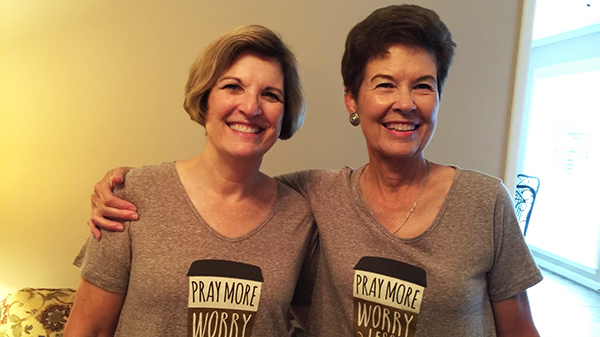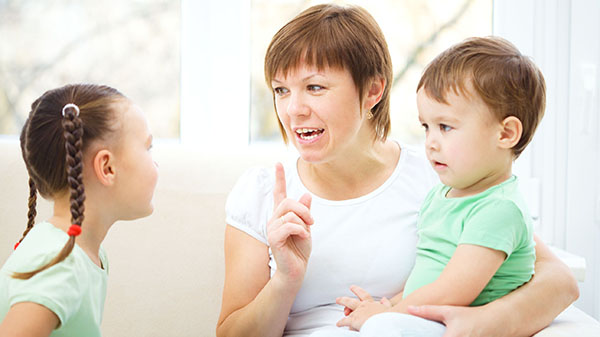Many adult children have a story similar to mine. My mother died of complications from dementia after a 10-year struggle. My father had been her primary caregiver for most of those years. Like many surviving spouses my father had no plans to date after my mother’s death (see story, page 7). One of the first things he said was, “I’m just not interested in dating anyone, let alone remarrying.” In my eyes that was the honorable and chivalrous thing to say.
However, within 18 months of my mother’s passing, my father had met, dated and married a sweet widowed lady from our church. So much for not being interested!
Looking back at the situation I had some conflicting emotions ranging from amusement to anger to confusion to slight betrayal. It was a new and strange situation and when it happened I was not prepared.
Whether a parent’s death is the result of illness or accident, sudden or prolonged, all of our parents will eventually pass on. After the services are over, the casseroles have been eaten and the well wishers fade, both the remaining parent and their adult children must look ahead to the next stage of life.
For many widows and widowers that next stage will include remarriage. Adult children have significant choices to make when that happens, so there are several important truths adult children who find themselves with a widowed parent should remember.
1. Individuals grieve differently even when going through the same situation. The parent and/or adult child may hold resentment, anger, unmet expectations or other feelings toward the deceased spouse/parent. God created marriage as a covenant relationship between two individuals who become one person, so when the surviving parent has lost his or her lifelong partner, a piece of that person’s entire being has been removed. Surviving parents are often completely exhausted and need time to recover. This recovery process sometimes lasts for several years. Some surviving parents never quit grieving. The parent as well as adult children might benefit from grief counseling or a support group to practice coping skills and strategies to live through their loss.
2. As adult children it is our responsibility to let the surviving parent grieve even as we walk through grief ourselves. The adult child who loses a positive parental role model often has lost a mentor, caregiver, hero and friend, yet after the initial grief process we go back to the normal routine of our lives, albeit with a changed perspective. However, the surviving spouse has lost a friend, confidant and companion. It should be obvious but as adult children in this situation we must realize we cannot fill the void for a deceased parent nor should we try. I remember trying to fill my dad’s every moment with activities with his grandsons or with my wife and me. However, a spouse-sized hole is not filled with a son-and-his-family-sized plug. We can definitely spend time with our parent, but in doing so we need to respect their feelings, desires, time and boundaries.
3. Marriage after the death of a spouse, both from the law and from grace, is biblically permissible and honorable in the eyes of God. As we examine the Scripture the remarriage of widows is addressed more often than the remarriage of widowers for three main reasons.
First men had much shorter life spans (they still do today though not as much). Second women at that time had difficulty supporting themselves and their children without a husband. And finally continuing the husband’s family line was very important in Jewish culture. In both the Old and New Testament there are several passages that address remarriage. In each case the only truly acceptable reason is the death of a spouse. In Corinthians, Paul encourages younger widows to remarry, a testament to the fact that remarriage is important.
So what do we do when our single parent starts to think about dating or, heaven forbid, goes out on a date?
Initially we need to make sure we don’t overreact when our parent shares his or her desire to start socializing with others or to date again. It’s a lesson learned from basic parenting or friendship. If someone close to us shares confidential information and we react with anger or frustration, there is a strong possibility that person won’t share personal information with us again.
Give them room
Next we need to let the parent lead. Your parent was able to grow up, marry, raise a family (which included you) and navigate life without your help. They have arrived in a very strange new chapter in their lives. Give them some room to process and grow. Also be respectful of their feelings when sharing your thoughts on the subject. It is definitely OK to share your opinion. However, this is their decision not yours. You can advise but from a distance.
Finally remember that God is sovereign and He doesn’t need your help or suggestions leading your parent through their later years.
8 tips for helping a widowed parent
1. Pray unceasingly.
2. Make sure your living parent’s physical needs are met. If needed, offer assistance but allow your parent to control the decisions as much as possible.
3. Listen to your parent without offering solutions or suggestions. There will be time for those later.
4. Ask your church for support group resources for both you and your parent.
5. When your parent talks about dating, stay calm and listen. If they ask for feedback, take time to process and respond.
6. With grace and respect, communicate your feelings and possible concerns with your parent.
7. Reiterate to your parent that it is his or her choice and not yours.
8. If you see a safety concern, verify before discussing with your parent.






Share with others: